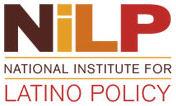
Time to Improve US-Cuba Relations
Poll Shows Strongest Support for Change from Cuban-Americans
By Maria de los Angeles Torres (February 16, 2014)
 New national polls released this week by the Atlantic Council show most Americans back policy changes that would lead to more U.S. engagement with Cuba. The strongest support, however, comes from Cuban Americans. This is not surprising as generational changes and more contact among divided families have lessened the animosities among Cubans. But most importantly the support is driven by the awareness that things are falling apart on the island and could end tragically if peaceful change is not encouraged.
New national polls released this week by the Atlantic Council show most Americans back policy changes that would lead to more U.S. engagement with Cuba. The strongest support, however, comes from Cuban Americans. This is not surprising as generational changes and more contact among divided families have lessened the animosities among Cubans. But most importantly the support is driven by the awareness that things are falling apart on the island and could end tragically if peaceful change is not encouraged.
I have been returning to Cuba for over thirty years and have never seen the situation as precarious as my trip in January. The bankrupt government is desperately trying to bring in cash and cut costs even at the expense of its legacy. Foreign investors, including Cuban Americans, are being wooed, while others who are owed money are not being paid or worse - some face jail or deportation.
Doctors are being bartered for oil. Prostitution is back with a vengeance, particularly in government-run venues. Plans are being implemented to lay off 30 percent of the country's workforce. Basic infrastructure is falling apart. Many streets are unpassable and crime is up. Even medical care, once a jewel of the revolution, is failing as evidenced by several cholera outbreaks. Aggravating the situation is a power struggle among the elite described by some as in-fighting between President Raul Castro's people and those loyal to his brother, former president Fidel Castro.
Within the last two years, the Cuban Communist Party issued new measures easing travel and authorizing a list of economic activities people could exert independently. These new regulations legitimized what was already happening on the ground and failed to make any fundamental changes.
Still , small businesses did pop up, many of them fueled with remittances from relatives in Miami. but so have the inspectors, overbearing rules and out of proportion taxing schemes. Even with permission to buy cars, the prices are so high that ordinary Cubans cannot afford the purchase. The pendulum is now swinging the other way as the government has shut down certain lucrative businesses.
Focus groups conducted for the Catholic Church indicates that people want vengeance. There have been recent reports of spontaneous protests and even a rumor of a beheading. Whether the latter is true or not, it still indicates the level of frustration and anger present among many Cubans.
Even while some intellectuals are given more room to criticize, others like punk rocker Gorki and his fans are jailed. Organized human rights groups are selectively arrested and given long sentences. In preparation for spontaneous rebellions, especially in urban areas, police from Santiago have been deployed to Havana in case the situation boils over.
Hopes that economic changes would usher political reforms have been dashed as the government holds steady and increases repression. Rising expectations coupled with the lack of political vehicles for dissent make random violent outbursts more likely.
Back in the U.S., Miami Cubans have often been cast as the enemies of the revolution with plans to overthrow it. As the U.S. has shut its immigration doors, the option of externalizing dissent has become more difficult, and now the stage is set for change on the island.
President Obama's policies supporting family visits and permitting monetary aid to families has had the effect of bringing together divided families. Visits by artists and intellectuals have also helped. More can be done.
Allowing U.S. companies to do business, for instance, in the tourist industry would create legitimate alternatives to those poorly run by Cuban generals and may indeed drive them out of business.
Allowing companies to sell Internet infrastructure could at least put the ball in the generals' courts so they could not blame the U.S. for lack of Internet. Engagement does not necessarily mean an endorsement of the regime and can be done thoughtfully and should be conditioned.
Despite the vitriolic tirades from some of the elected Cuban American officials, the response of Miami Cubans-even generations born there -has been one of increased support for peaceful change. Now there are no more excuses on this side for lack of change --- particularly given the urgency to do so.
Maria de los Angeles Torres is a Professor of Latin American and Latino Studies, University of Illinois at Chicago, She is the author of "Lost Apple: Operation Pedro Pan, Cuban Children and the Promise of a Better Future" and "In the Land of Mirrors: The Politics of Cuban Exiles in the United States." She can be reached at torresma@uic.edu.
